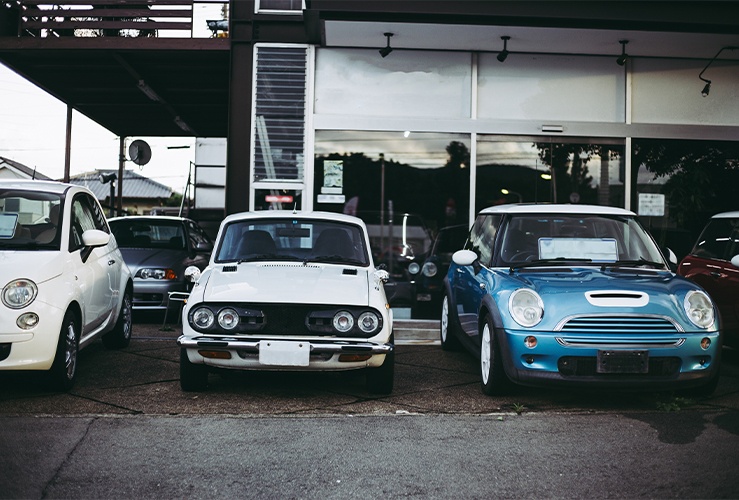Looking to purchase a new car? Trading in (part-exchanging) your old vehicle could be an effective way to reduce the cost of a new vehicle while offloading your old one.

You simply approach a car dealership that is selling the model of car you want to buy, and who would also be willing to buy - or trade-in - your old car.
The price offered for your old vehicle would then be subtracted from the price of the new car.

If you want to streamline the process of both selling your old car and buying a new one, a trade-in deal could be a good option. At its simplest, you would take your old car to a dealership, and they would offer you a price for it. This would then be taken off the cost of your new vehicle and you could, once the paperwork is done, simply drive away with a new set of wheels.
Since the dealership will be looking to sell your old car on for a profit, they will aim to give you as low a price as they possibly can. It's possible you could get a considerably better price by selling your old car privately.
For the vast majority of dealers, this is not a problem. A trade-in deal can still be done.
No - not if you want to minimise how much you're going to spend overall. Here are some tips for grabbing a great deal...
Use online tools from firms like Parkers or Edmunds to determine the value of your vehicle. Bear in mind things like age and condition will impact the value, as will having extras like air conditioning and alloys wheels. How well your car has been maintained will also affect the value.
Don't just take the first price you're offered. Visit a few dealerships and see what price they can give you. Doing this will also give you a better idea of what your car is really worth, putting you in a better negotiating position. And of course, you should shop around for the best price of your new car. In an ideal world, the two best deals would be offered by the same dealership.
With car salespeople, you're up against seasoned negotiators. You need to haggle politely but robustly if you're going to get the best price.
You need to maximise the price offered for your old car, and minimise the cost of your new one. These are essentially two different deals, and should be negotiated separately.
Beware that a dealer may offer you a decent price on your old car, but isn’t so generous with the sale price of the new car. You need to evaluate these factors in order to get the best deal.
Car sales staff are trained to extract the best deal for themselves, so you must be similarly resolute in bagging yourself a bargain. Even if you're offered a deal that meets your expectations early on, don't make this obvious. Play your cards close to your chest, and hold out for something better (a better price, an optional extra thrown in for free, etc.). And don't let the salesperson's chumminess deflect you from getting the best deal; you didn't walk in there to make friends!

Make sure both minor and major faults have been fixed, and clean the car inside and out. Completing these tasks will help you get a better price.
Strictly speaking, you might get a better price by selling privately then putting the cash towards your new car, but if you're willing to do your research, shop around and haggle hard, then trading in your old car for a new one could make a lot of sense. For many, trading in your old car is the simplest and easiest option.





